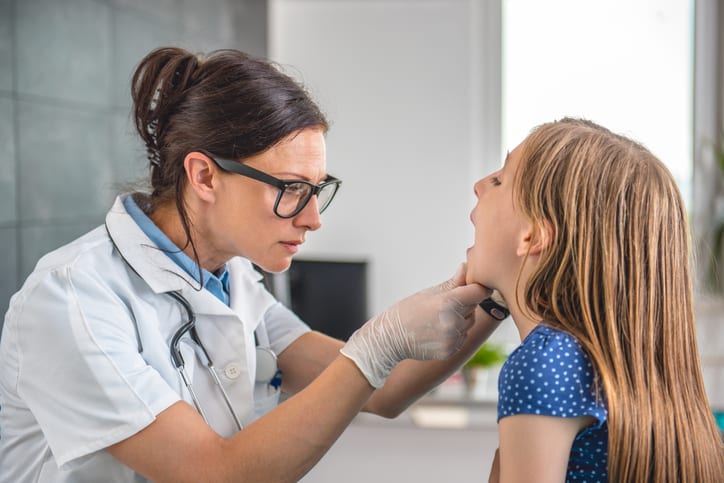The rollercoaster called COVID-19 has slammed the world. It is a vortex of information, misinformation and everything in between. Facts and speculation about this moving target change so quickly that a fatiguing mental whiplash is one of its results.
Back in the “ancient days” of this pandemic, meaning less than two weeks ago, scientists believed that for the most part, children were spared the ravages of this virus. The few babies who were diagnosed as COVID-19 positive were hospitalized because they were less than 8 weeks old with a temperature greater than 100.5 degrees Fahrenheit. Hospitalizing an infant for a minimum of 48 hours with this temperature minimum or above is standard operating procedure (even when COVID-19 is not rampant). They have been discharged and are doing beautifully. Kids and adolescents with COVID-19 seemed to experience minimal symptoms and discomfort.
Children can be asymptomatic while being “shedders” or carriers of COVID-19. This is one reason why grandparents and great-grandparents need to maintain social distance. Further, we encouraged and continue to encourage parents to make sure their children maintain social distance from peers.
Until recently, meaning about a week ago, the medical world was confident and despite these precautions, an ominous pediatric condition possibly linked to COVID-19 has appeared in Europe and, most recently, in the United States.
Pediatricians worldwide are reporting about an inflammatory syndrome that has been (aptly) named Pediatric Inflammatory Multi-System Syndrome (PIMS). PIMS is a new health condition diagnosed in children who had novel coronavirus. Note the past tense. More on that later.
The virus presents as similar to Kawasaki disease. Kawasaki is a rare illness whose cause is unknown (although researchers think it may be caused by an infection) and it affects children mainly ages 0-5 years, but sometimes up until 13 years of age. It is a type of vasculitis, an inflammation of the blood vessels that can affect the entire body, including the blood vessels of the heart, also known as the coronary arteries. Left untreated, children with Kawasaki disease are at higher risk of developing problems within the coronary arteries; other areas of the heart may be affected as well. With immediate intervention and treatment (most usually intravenous gamma globulin and oral low dose aspirin), most children recover and have no residual symptoms or lasting problems.
Diagnosing PIMS is done by ruling out causes for symptoms and a physical exam. Symptoms include a fever of 102-104 degrees Fahrenheit for at least 5 days, red eyes, changes in the lining of the mouth, skin changes in the hands and feet, rash, swollen lymph nodes and red, cracked lips. Again – the physical exam is important.
To make things more confusing, not all children diagnosed with Pediatric Inflammatory Multi-System Syndrome have tested positive for COVID-19. Some scientists believe that by the time inflammation appears in the body, the COVID-19 virus is no longer detectable on nasal swabs.
Because this is a new, developing area of medicine, pediatric experts in intensive care, infectious disease, cardiology, rheumatology, and Kawasaki disease are reviewing data from the cases in the United States and Europe. They are offering guidance to pediatric clinicians and are laying out a blueprint for further research into this mysterious illness that may be COVID-19 related.
Interestingly, PIMS is not contagious. Why? Because to have PIMS, the child must have had the infection previously. In order to have antibodies against COVID-19, the patient must be past the contagious stage of the disease.
What should be the takeaway for readers?
First, this illness is rare. Very rare.
Second, do not Google. It’s not worth your agonizing nor increased intake of alcohol and G-d knows what else.
If you see symptoms listed earlier, don’t diagnose and don’t panic. Rather, call your pediatrician. If the doctor instructs you to bring your child into the office, heed the directions and follow his advice.
Emerging information about COVID-19 is a 24/7 phenomenon. Same for PIMS. Please know that your pediatrician cares and want the best for your children.
As always, daven.
The words of this author reflect his/her own opinions and do not necessarily represent the official position of the Orthodox Union.



